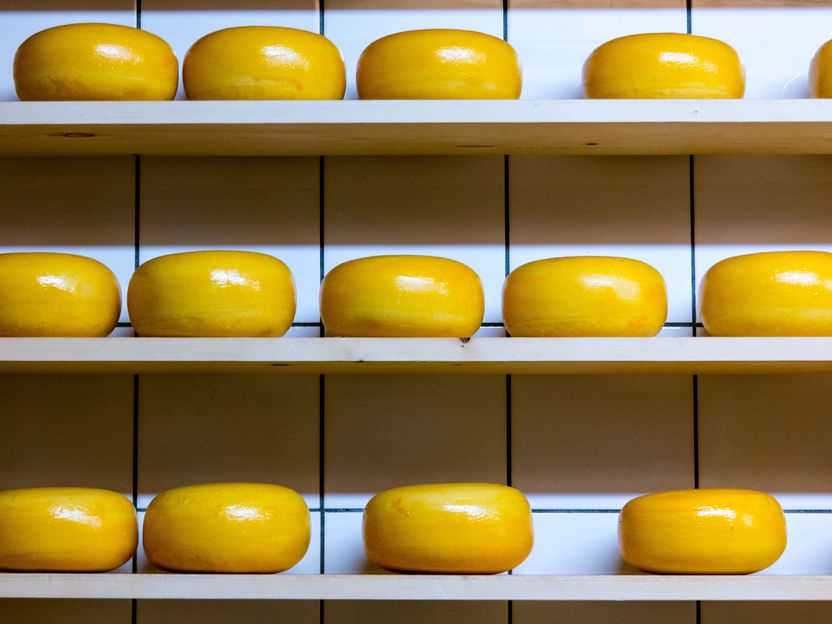No lamb and no cheddar? A No-Deal-Brexit would have many consequences
Advertisement
Better postponement than chaos-brexit: That's how it looked on Friday in the endless saga about the British withdrawal from the EU. But nothing is certain before the EU special summit on Wednesday and the danger of an unregulated departure of the British in a week's time has still not been averted. What this would mean, the EU Commission described this week gloomily. "A "no-deal scenario" would be extremely expensive and destructive," said Commission Vice Jyrki Katainen.

symbol image
Photo by Katrin Leinfellner on Unsplash
The crucial point is that if the agreement were to be resigned without a treaty, the transitional phase agreed between London and Brussels would expire at the end of 2020, during which almost nothing would change despite Brexits. From one day to the next, dozens of legal issues would be unresolved or only regulated one-sidedly. Some examples:
No carefree travelling?
In order to maintain air, rail and road traffic, the EU has adopted a number of emergency measures. They are limited in time and are based on the assumption that Great Britain will proceed in a similar way. The large traffic infarction with the cancellation of all flights shortly after a No-Deal-Brexit is no longer feared. But it won't go smoothly either, says the EU Commission: "A withdrawal of the United Kingdom without a deal will cause disruptions in all modes of transport, but to different degrees.
Travellers can expect not to need a visa. The EU has decided this for Britons, again on the condition that Britain does the same. There could still be inconvenience. Certain products could no longer be easily brought into the EU in the future, and a cash limit of 10,000 euros would apply.
Chaos at customs
From the point of view of the EU Commission, customs duties would have to be levied after the Brexit, and consequently there would have to be customs controls for all goods imported from Great Britain. The effort would be enormous: between Dover in southern England and Calais in northern France alone, four million goods vehicles run every year - around 11,000 a day. Megastaus is expected. Particularly affected would be the coastal states of France, Belgium, the Netherlands and Germany - and the Republic of Ireland, which has the only land border with Great Britain, namely Northern Ireland. It is imperative that barriers and checkpoints are avoided because they could fuel new political tensions in the former civil war region. Neither the EU nor Ireland have yet clearly stated how the problem is to be solved.
No British cheddar for now.
For fear of disease, unsafe products and dumping, the EU is also planning controls on imported goods and live animals.
According to EU officials, in order to be able to import animal products or animals into the EU, Great Britain would first have to be officially registered as an authorised third country. The process had begun, but they were still waiting for the necessary British legislation to be passed, they said this week. From the EU's point of view, no animal products or animals can therefore be imported from Great Britain as things stand at present, for example no cheese or meat. However, the necessary laws could be passed before Brexit Day 12 April. According to EU figures, the country imports 73 percent of all agricultural food from the EU.
Will there soon be no syringes or test strips?
Imported medical devices require an official licence from one of the 27 remaining EU states - and according to the EU Commission this has not yet been completed for all products. In the event of a chaotic Brexit next week, patients will have to be prepared for a temporary shortage of some of these products.
The medical devices category includes everything from plasters to syringes and test strips. However, according to EU data, patients do not have to worry about the supply of medicines.
Fishing boats must stay outside
In the event of a hard breach, fishing boats from EU countries would have to leave British waters immediately - and vice versa. Together with the EU requirements for animal products, this could temporarily disrupt the flow of goods. But this would especially affect the fishermen themselves. Those who otherwise cast out their nets in British waters will not simply be able to fish elsewhere - otherwise, in the view of the EU Commission, overfishing threatens there. The victims of Brexit are therefore to receive state aid from the EU and possibly from their governments as well./vsr/DP/fba
Note: This article has been translated using a computer system without human intervention. LUMITOS offers these automatic translations to present a wider range of current news. Since this article has been translated with automatic translation, it is possible that it contains errors in vocabulary, syntax or grammar. The original article in German can be found here.
































































